Actors have to empathise. If they don’t root for their characters, no one else will. They mustn’t judge, just relate. But I have never known an actor defend the woman she is playing quite as fiercely – or as unexpectedly – as Sandra Hüller.
Hüller, 38, stars in Toni Erdmann, a German comedy which was critics’ pick at Cannes and is easy favourite to win the foreign language Oscar next month. She plays Ines, an outsourcing consultant in Bucharest: a chilly stick, morals lost to professional competency long back. “I’m not a feminist,” she tells a colleague, “or I wouldn’t tolerate guys like you.”
Following the death of his dog, her larky father, Winfried, comes to stay. It goes badly. Concerned, he returns, wearing a wig and false teeth, in the guise of a life coach called Toni. Through two hours and a series of set pieces – nude birthday party, barnstorming karaoke (a scene that triggered a mid-screening round of applause in Cannes), someone ejaculating on to a petit four – Ines gradually changes.
Or not. Hüller’s reading is rather different. First, there’s her character: “I don’t think she’s a cold person, not at all. She’s a torpedo … she doesn’t care if anybody likes her. And that makes her really strong.”
Then there’s the father. He is not, as I had suspected, gentle and benevolent. His visit is “an assault”. His inquiries after her wellbeing are “really annoying and rude. It’s really intimidating, like a slap in the face. I totally understand her reaction. He’s moving away from his own problems by projecting on her. He should get on with his life.”
He’s not just trying to be a good dad? “My own father was always there when I needed him – that’s all it takes. He would never say something about my job.” Winfried’s problem, she thinks, is self-interest. “Maybe he just wants a part of himself to go on living. Maybe he’s just disappointed that he didn’t see a trace of himself in her.”
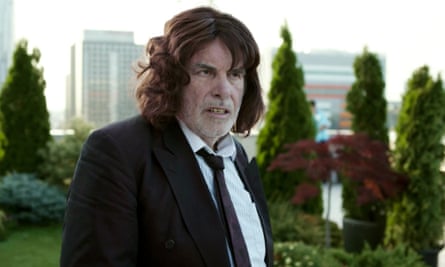
Hüller is having breakfast at the Wolseley in London in October. She’s over for the film festival, is friendly, straightforward, Germanic. The previous evening, news broke of Trump’s “grab them by the pussy” brag. “OK, now it’s over,” she says, over avocado.
Except it wasn’t. And something Toni Erdmann nails especially well is how people are prepared to suck up a boardroom culture which means that, despite Toni being weird (he is, distractingly, a dead spit for Barry Humphries’ Sir Les Patterson), and ignorant of the industry, people take Ines more seriously simply because she has a bloke in tow.
“Business was invented by men,” explains Hüller. “If you support the world economy as it works today, you probably have to play that game.” Would it be different if Ines had children? A shrug. “She wouldn’t have that job.”
Hüller (who has a four-year-old daughter) works mostly in theatre. In Germany, that means strict regulations, including two-year contracts. Presumably she rarely encounters such sexism? “I don’t know,” she says. “We can also be cruel to each other. People can be really harsh.
“I have the feeling I have to excuse everything twice or three times a day. I have to explain that I can’t work the way I would if I didn’t have a child; that I can’t work on this date because I can’t be away from home, I don’t want to be away from home.”

That’s changing, she hopes, in part through Ines’ example, as well as that of the director, Maren Ade – and other people she admires, such as Tracey Emin (“So unrelenting in her pain. To make ugly words shine in the light – that’s healing”). “I always had the feeling in my life that I have to serve people a lot; really make everybody feel comfortable. But you don’t always need to. Sometimes you can just walk away when it’s not all right.”
Hüller was born in 1978 in East Berlin. Ever since she was a child, she says, she has considered herself “a very serious person”. She was 11 when the wall came down. Life in the former GDR felt “safe”. “People told me I would definitely have a job later: ‘Nobody needs to starve here or live in the streets.’ There were no drug issues. Maybe it wasn’t the truth, but as a child there was not so much fear.”
She liked the lack of choice. “We had one sort of milk, one sort of butter, one kind of bread, and you went to the shop to buy the things you really needed. There was no such thing as shopping; walking around and trying to find something you like. It was not so stressful. There was so much more space for leisure, for boredom, for making things out of nothing.”
The generation raised on tech may be left flailing, she fears. “There will probably be a moment when all of these things don’t work any more. And I’m really happy that I know what it feels like when you can’t call anybody on the phone. You know how to write a letter and where to find a stamp.”
They won’t be just at sea practically, but emotionally, too. Smartphones may be eroding empathy. “When you are looking at some little machine that is making some light and noise, you don’t look at people. You cannot think about them or imagine what they feel. And also you probably can’t know what you feel yourself. And that does explain some of what’s going on in Germany now. People even invent that the refugees made all this up! They invent scenarios where the boats weren’t really on the sea.”
Hüller doesn’t sigh: she’s too pragmatic for that. But she is unsettled by the present. The prevailing mood in her country is one that “Germans know from the past”. “It’s a really dangerous time. The mood on the street has changed. People are more rude; more offensive.”
On the plane, Hüller read an English-language article damning Germany for criticising Brits over Brexit. Yet one of the chief reasons Toni Erdmann caused such a splash in Cannes was that it debunked many people’s preconceptions about Germany. Here was a film with an acute sense of irony and embarrassment, which seemed to owe as much to Curb Your Enthusiasm and Seinfeld as bratwurst gags.
Was the surprise that a Germany comedy could be funny insulting? “Everybody knows the German cliches – and maybe they’re even true. But who cares? People will think what they want about Germany until they die. That’s not changeable with one movie.”
At a screening in the US recently, Hüller says, there was “confusion” and “many questions” over the film’s unconventional structure. But she, too, was confounded: America – it was her first visit – was friendly and welcoming. “It seems I have to rethink a few views I had on the world because Cannes also surprised me with its tenderness and warmth. I only know it from tabloids and the whole dressing-up thing. I thought it was all about the outside, but it’s not. It’s about movies, and I really didn’t know.”
Hüller is a serious, committed artist, refreshed by her dip in the mainstream. But taking the plunge is a long way off. “If you really want to go big in America, I would have to change a lot of things about my body and my face. I would, at least from the outside, become another person. Otherwise you wouldn’t fit in.” Those who do have cosmetic work done “just go on craving and craving and craving for something that they can’t have”.
She polishes off her eggs. “I have to decide if I really want this or not. I don’t – so that’s probably it with my American career. And why not? I won’t die because of it. I’ve got a lot of work to do in Germany.”
Right from that exuberant premiere last May, there has been speculation over the inevitable US remake of Toni Erdmann. Critics started casting it in their heads: would Bill Murray or Jim Carrey be the dad? Just how much of the nuance could it preserve? Hüller declares herself unimpressed by the concept. “I hope that they switch the gender so that it’s a mother and son. If it doesn’t work, it makes our film so much better – and if it does people will say it was a good source.”
And what about her role? Who would take that on? Sandra Bullock was mooted – would she be good? Hüller looks as unimpressed as Ines, faced with her father, making use of a whoopee cushion. “Yeah, she could try …”
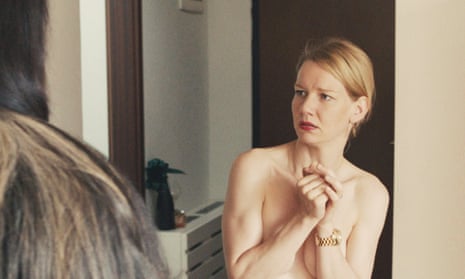


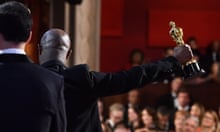
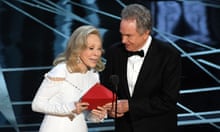




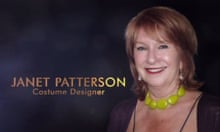
Comments (…)
Sign in or create your Guardian account to join the discussion